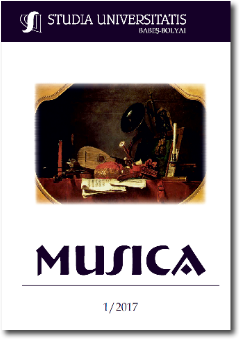KASTRATEN, DIE PRIMI UOMINI DER EUROPÄISCHEN OPERNBÜHNEN
CASTRATOS, AS THE PRIMO UOMO-S OF THE BAROQUE OPERATIC STAGES
Author(s): Miklós FeketeSubject(s): Fine Arts / Performing Arts
Published by: Studia Universitatis Babes-Bolyai
Keywords: castrato; primo uomo; sacrifice; opera seria; opera composers; castrato roles; pants role; falsettist; countertenor.
Summary/Abstract: This paper presents the importance of the castrato-phenomenon in the history of the European music. From the humiliation and punishment of the defeated, castration became first in the Byzantine culture (from the 5th century) and long after in Italy (from the 16th century) a sacrifice and an offering for art and music. Being forbidden, but tolerated and even supported, castration for music became the most unnatural but also the most supernatural human phenomenon, used for artistic amusement and delight. Starting the singing career in catholic churches, they became the most adored and celebrated primo uomo-s of the renowned European operatic stages. Their presence transformed the genre of opera, and their singing technique (ben cantare) lead up to the bel canto style of the Romanticism. The revival of the baroque opera (for ex. the operas of Händel, who employed for these roles more than twenty Italian castratos) brings up the problem of finding the adequate singer-type, who could “replace” their roles.
Journal: Studia Universitatis Babes-Bolyai - Musica
- Issue Year: 62/2017
- Issue No: 1
- Page Range: 49-62
- Page Count: 14
- Language: German

